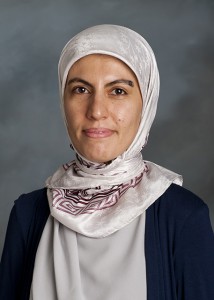Fellowship Supports CSUN Prof’s Efforts to Improve Offshore Energy Safety

Maryam Tabibzadeh
Maryam Tabibzadeh is in the process of developing a digitized, data-driven, early-warning system that could prevent disasters like the 2010 Deepwater Horizon blowout and oil spill in the Gulf of Mexico — considered the largest marine oil spill in history — which devastated the Gulf Coast and killed hundreds of thousands of marine animals.
To help her achieve her goal, Tabibzadeh, an associate professor of manufacturing systems engineering and management at California State University, Northridge, has been named an Early-Career Research Fellow in Offshore Energy Safety by the Gulf Research Program (GRP) of the National Academies of Sciences, Engineering, and Medicine.
“It is quite an honor to receive the fellowship, and it is an affirmation that the work I am doing is important,” said Tabibzadeh, who teaches in CSUN’s College of Engineering and Computer Science.
The GRP Early-Career Research Fellowship helps researchers to further develop their professional career. Fellows receive a $76,000 financial award along with mentoring support to provide them with independence, flexibility and a built-in support network as they take risks to research ideas, pursue unique collaborations and build a network of colleagues.
Tabibzadeh and other recipients of the fellowship will be working to improve the understanding, management and reduction of systemic risk in offshore energy activities.
Her research focuses on risk analysis in complex safety-critical and technology-intensive industries such as the offshore drilling sector. Specifically, Tabibzadeh is investigating the roles human and organizational factors play, along with technological elements, in offshore drilling failures.
“When a disaster happens, such as the Deepwater Horizon oil spill, we tend to look at the ultimate, technical failures that led to the drilling accident,” Tabibzadeh said. “In many cases, we ignore the soft components, the human and organizational factors, that may have actually been the root causes of those incidents. Even the technical failures have roots in human and organizational factors, or those factors played a critical role in related errors.”
Tabibzadeh has developed both qualitative and quantitative risk assessment methodologies to analyze the critical role human and organizational factors, such as safety culture, business procedures or governmental policies, play in the safety of offshore drilling operations. In some studies, she specifically emphasized the risks involved in implementation and interpretation of a critical procedure called negative pressure test as a primary method to ascertain well integrity in offshore drilling. A negative pressure test involves lowering the pressure inside of a well by pumping fluid out in order to make sure that the well’s structure can withstand leaks. The misinterpretation of the negative pressure test was one of the major contributing causes of the Deepwater Horizon blowout.
“One of the issues with drilling accidents has been the misinterpretation of negative pressure tests,” she said. “I want to develop a conceptual risk-assessment framework that captures the role the human and organizational factors play in the interpretation of such tests. The goal is to understand where the first error is made. One error can lead to other errors, which in turn can lead to an accident if they aren’t caught in time.
“One of the ideas I have is to look into several offshore drilling incidents, identifying their contributing causes across the AcciMap (a systems-based technique for accident analysis) framework, which is a systematic accident investigation methodology,” Tabibzadeh continued. “I would then identify the common contributing causes of all those accidents and use that as a foundation to develop a list of leading indicators that could be used to predict and prevent future accidents. That can then be digitized and automated through an interface such as a dashboard to help safety managers better monitor the safety of their offshore operations.”
Tabibzadeh said one of her biggest obstacles is collecting the relevant data from energy companies that are reluctant to share that information. She is hoping that the Offshore Energy Safety fellowship will help open doors so she can gather hard data from their systems.
If her research is successful, it could have long-term impact, both ecologically and economically, on the human and marine communities that rely on the Gulf of Mexico for survival. It could also help oil companies save money by improving offshore drilling safety and preventing future accidents in this field.
“We really do not want another Deepwater Horizon incident in the Gulf of Mexico or anywhere else in the world,” she said.

 experience
experience